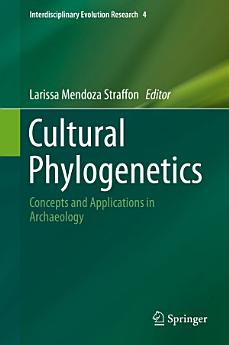Cultural Phylogenetics: Concepts and Applications in Archaeology
À propos de cet e-book
The volume is divided into two parts: The first covers the theoretical and conceptual implications of using evolution-based models in the sociocultural domain, illustrates the sorts of questions that these methods can help answer, and invites the reader to reflect on the opportunities and limitations of these perspectives. The second part comprises case studies that address relevant empirical issues, such as inferring patterns and rates of cultural transmission, detecting selective pressures in cultural evolution, and explaining the nature of cultural variation.
This book will appeal to archaeologists interested in applying evolutionary thinking and inferential methods to their field, and to anyone interested in cultural evolution studies.
À propos de l'auteur
Larissa Mendoza Straffon is an archaeologist and art scholar. She holds a PhD from the Leiden University Centre for the Arts in Society, in The Netherlands. Her research focuses on the relationship between visual art and human evolution, and prehistoric art traditions. She is a specialist in the Archaic Great Mural rock art tradition of Baja California, Mexico, the development of art in the European Paleolithic, and World Art History. Her fieldwork experience includes important archaeological sites such as the cave of Hohle Fels, in Germany, and the UNESCO-listed Mexican sites of Teotihuacán and Sierra de San Francisco. Mendoza Straffon is an active member of the Mexican Rock Art Association and the Dutch Postgraduate School for Art History. She has held appointments at the Escuela Nacional de Antropología e Historia, in Mexico; the Art History Department of Leiden University, in The Netherlands; Leiden University College The Hague; and the Applied Evolutionary Epistemology Lab at the Centre for Philosophy of Science, in the University of Lisbon, Portugal.







